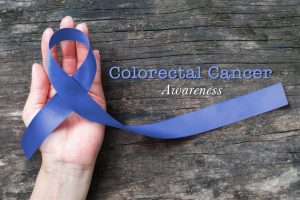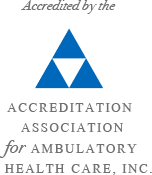Colorectal Cancer Awareness Month: March In for a Colonoscopy
 Every March, to increase awareness, we recognize colorectal cancer awareness month. No one likes to think about getting a colonoscopy, but it’s an important conversation to have. Early detection of colon cancer can save your life.
Every March, to increase awareness, we recognize colorectal cancer awareness month. No one likes to think about getting a colonoscopy, but it’s an important conversation to have. Early detection of colon cancer can save your life.
What Is Colorectal Cancer?
Colorectal cancer is the term for any cancer that occurs in the colon or rectum, including colon cancer and rectum cancer. The colon is the large intestine and the rectum is the small passageway between the colon and the anus.
How Common Is Colorectal Cancer?
More than 50,000 people die each year from colorectal cancer, but early detection can change that number. It is a highly treatable cancer when detected early. Often considered a cancer only older people get, more and more people under the age of 50 are being diagnosed with the disease.
What Are the Symptoms of Colorectal Cancer?
If you have bloody stools or any other change in your bowel habits, you should make an appointment to see your physician. Other symptoms of colorectal cancer include fatigue, nausea, gas, bloating, and abdominal pain or discomfort. Some people do not have any symptoms, which is why a colonoscopy at age 50, or earlier if you have a family history of colorectal cancer, is essential.
Why Do I Need a Colonoscopy?
A colonoscopy can save your life. It is an outpatient procedure used to examine your large intestine (colon). There is more than one type of lower GI endoscopy, including colonoscopy and flexible sigmoidoscopy. A colonoscopy is used to examine the lining of the large intestine via an endoscope, which is a long, thin tube that is flexible and has a camera at one end. It is the best way to detect colorectal cancer early. During a colonoscopy, polyps (precancerous formations in the colon) can be removed.
If you believe you may need a colonoscopy, the first step is to consult with a skilled NYC gastroenterologist. Gramercy Park Digestive Disease Center (GPDDC) is home to top board-certified gastroenterology physicians, with extensive experience in digestive disease diagnosis and treatment. Call (212) 979-3237 or use the form on this page to learn more about our GI services and treatments.


